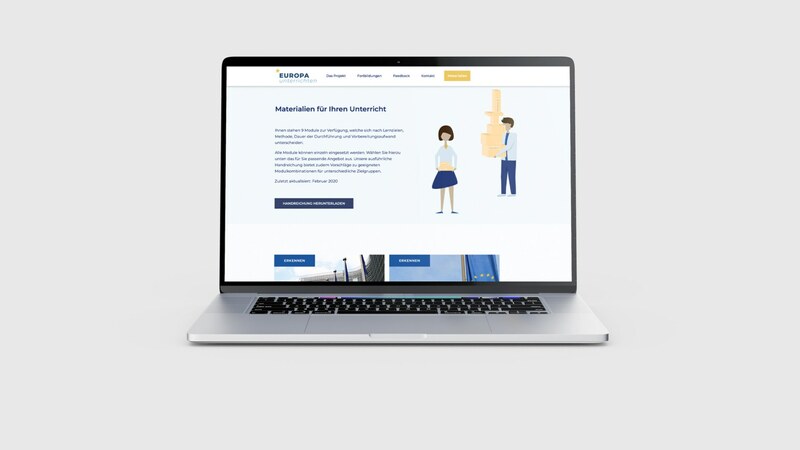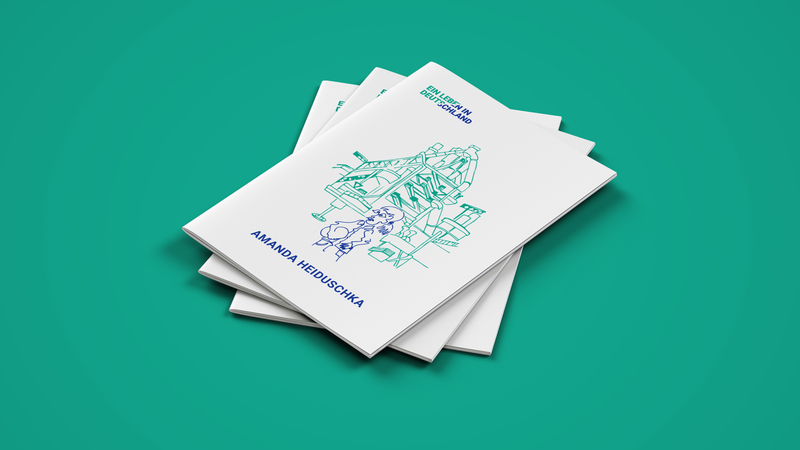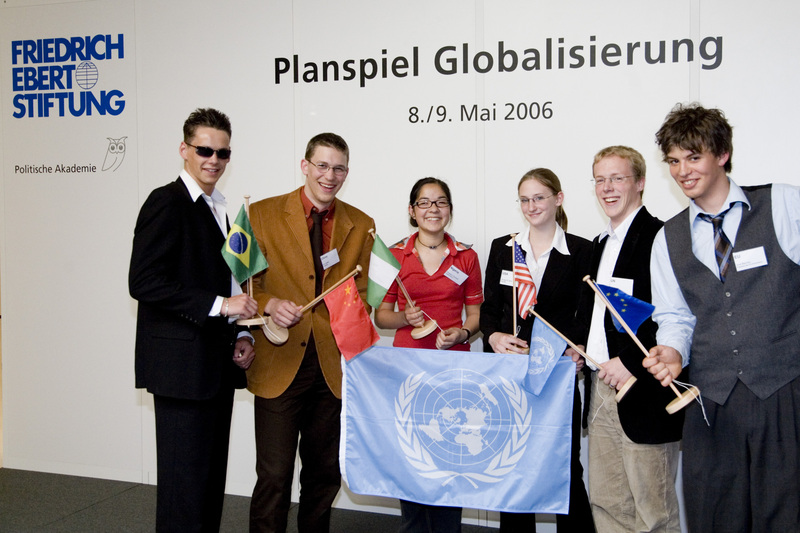The EuropaCamp brings together people from a wide variety of backgrounds and age groups – from retired ambassadors and experts on EU politics to seventh-graders who want to learn more about the EU – the mix is as diverse as our society. This is precisely where the challenge lies: how do you get such different people to discuss things together on an equal footing? And how do you ensure that everyone enjoys themselves and is neither over- nor underchallenged?
We seem to be quite successful in this – at least the workshops are popular and the discussions are very lively. A central aspect of our recipe for success is our favourite discipline: the political simulation game. With precise role materials, we bring all participants up to the level of knowledge they need for the simulation game and then let them make their own decisions. This is not only fun, but also gives our participants the chance to represent very different interests and delve deeper into political discourse. But we also use other formats: from pub quizzes and situation rooms to the ‘red thread method’ for exploring the shared and parallel histories of the EU and Ukraine.
The second part of our concept is participation. Everyone has an opinion, even if it may still need to be discovered, explored or cultivated. The best way to do this is to absorb a few bite-sized pieces of knowledge conveyed in a playful way and then talk to other people about what should change. This explains the basic recipe for our participation formats, in which a wide variety of people come together to develop demands, ideas and controversial theses on a given topic. And whether the topic is Europe's role in the world or climate policy, everyone can contribute something valuable to the discussion.
We also find the interactive panels we have designed particularly exciting, where we bring participants and panel guests together on an equal footing to engage in conversation. On topics such as ‘Climate neutral by 2050 – can we do it?’, the 2024 European elections, or after the 2025 Hamburg state elections, we used different approaches to narrow the gap between visitors and panel guests. They were placed on stage in small circles of chairs and first engaged in conversation with each other. They initially exchanged views on what they had heard and considered questions and comments.
Our impression was that the format worked very well. It meant that the participants were much more active than they might otherwise have been, and that questions and ideas came from people in both large and small groups who might not normally have spoken up at such an event. According to their feedback afterwards, it was an exciting new experience for the panellists and the moderator, with a higher quality of interaction with the participants.
Update: Since 2025, the event has broadened its scope – Europacamp has become the Democracy Festival. This was another very successful event, and we look forward to the next round in 2026! #StayTuned
Similar Projects

Interactive educational modules, Serious games, Simulation games
"Post It!"
An escape game that sends participants on a time travel to 1943, 1986 and 2021 to explore the history of freedom of expression and dissent in different times. And a second module for elementary school.

Interactive educational modules
Simple ideas for living together in solidarity?
It all started with the video simulation game "The Usual Suspects", which was developed as part of a cooperation with the Respect Coaches programme, funded by the federal government.

Interactive educational modules
#GetinvolvedEU - planpolitik for Presidency
In the second half of 2020, Germany held the EU Council Presidency for the first time in 13 years. This came with the honour of holding informal Council of Ministers meetings on a wide range...

Interactive educational modules
“Gedenkanstoß” (literally: “Prompt to remember”)
We have developed a digital self-study course on topics and issues relating to the reappraisal of Nazi injustice for the Foundation Erinnerung Verantwortung Zukunft (EVZ).

Interactive educational modules
Modular Europe
Our portal “Teaching Europe” [https://www.europa-unterrichten.de] provides materials for interactive workshops and participation-oriented teaching. It is aimed at teachers and trainers in both formal and non-formal education.

Interactive educational modules
European values, made understandable at last!
"Translating European Values into Practice" - that is what we set out to do in this Erasmus+ project. The aim of this three-year project with partner organisations from Belgium, Poland and Italy was to make...

Interactive educational modules
Small Big Steps against exclusion and extremism
How does a far-right speech on a Liverpool sports field differ from a similar situation in Berlin or rural Bavaria? How do you portray an Islamist as an (animated) character without reproducing stereotypes? And how...

Simulation games, Interactive educational modules
"A life in Germany"
The Treuhand - depending on the political perspective it is either solely responsible for a "sell-out of the East" or its work is presented as "historically without alternative". More than 30 years after German reunification,...

Interactive educational modules
Mission Possible: Climate Justice in 9 Modules
Flexible workshop concept enables quick or deeper insights into the topic of climate justice, New set of methods makes climate policy tangible

Interactive educational modules, Simulation games
Fact or Fake?
The spread of fake news and hate speech on social media is a major problem. Our simulation game on this topic is being played at 100 schools across Germany on behalf of the European Commission,...

Interactive educational modules, Simulation games
Free simulation game workshops for schools
Eight workshop formats, 1-2 days, free of charge for schools! We have been offering youth workshops with simulation games for the FES since 2006. We are delighted that the framework agreement has been extended by...

Interactive educational modules, Serious games
Break out of the disinformation spiral!
Our first escape game about media literacy! The Fake Busters are on the trail of a disinformation campaign. They have 90 minutes to find evidence and help the democratic president. To do that, they have...

Interactive educational modules, Simulation games
Citizens' assembly in action!
For the German Federal Agency for Civic Education (bpb), we developed a simulation game on the topic of social inequality, in two versions for 11- to 14-year-olds and for young people aged 15 and up...
